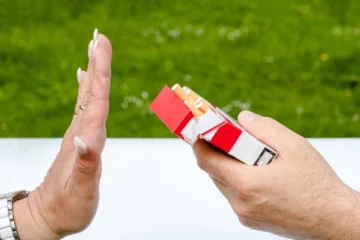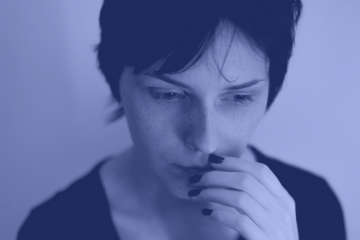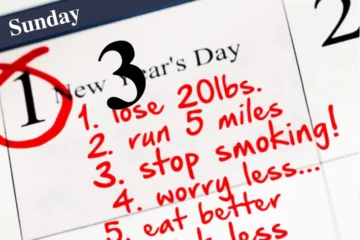Every year, a lot of noise is made in the media about a very specific date. The third Monday in January is crowned “The Most Depressing Day of the Year” or “Blue Monday”. You’ll see it every year, and to be honest, I even posted about it myself last year, in good faith.
But since then, I’ve looked into it a little bit further, and it didn’t take long to find out that it’s total nonsense. The claim is backed by a scientific looking equation which considers debt, the weather, motivation, and a few other random variables. The problem is that even the equation’s creator, Dr Cliff Arnall, has admitted that it’s totally meaningless, and that it was devised for a travel firm, as part of their PR strategy (https://www.theguardian.com/science/2006/dec/16/badscience.uknews).
While some specific conditions are season-related (like SAD, Seasonal Affective Disorder), the causes of depression, anxiety and other mental issues are complex and varied, and shouldn’t be oversimplified. But this pseudo-scientific “alternative fact” is repeated year after year without fail until it has become an accepted wisdom for the general public.
Beyond the issue of the lack of scientific validity, the other problem is that it feeds the morbid media’s appetite for doom and gloom. For some reasons, bad news sells better than good news. By scaring us, the media keep us buying their information so we are better prepared to face the next threat. This could be the next economic crisis, the next Polar Vortex (also known as Winter) or the latest political scandal. According to them, everything is depressing, the world is a dangerous uncertain place and on top of that, you are reminded constantly that you are not good enough. Look at all those celebrities. Why aren’t you as slim, fit,
rich, or youthful-looking as they are? Are you lazy or incapable?
My main issue with this is that it conditions people to look at all the negatives, all the problems, all the worst-case scenarios and underestimate their own skills and resources. This leads to anxiety disorder. Your natural protection and coping mechanism are on overdrive all of the time. When a problem or a challenge inevitably arises, you have nothing left and you crack.
It doesn’t have to be this way.
Depression, anxiety disorders and other mental illnesses are not something you can just “snap out” of. It often takes time and requires help. That said, there are a few things you can do to make it easier on yourself.
- Actively look out for positives in every situation. Eventually, it will become a habit.
- Let that molehill be just a molehill. Stop, breathe and refocus. Will this matter in 5 years, 5 weeks, 5 days or even 5 hours?
- Failure is feedback. Learn from it, and then move on. Thomas Edison claimed he successfully discovered 1,000 ways to not build a lightbulb.
- Make time for yourself. Whether it is a hobby, a nap or a walk with dog. We all need some time out.
- Visit your friends and have a good time. Also, open up. You’ll be surprised at how many others suffer from anxiety and depression and are also desperate for friendly help.
- Watch funny cat videos, or whatever brings a smile to your face. Get your daily dopamine/endorphine/serotonin fix.
Those are just some suggestions and you might already have in mind a few other ways you can get yourself out of your rut. And if this is not enough, go out and ask for help. Visit your GP or find a professional therapist. It is their job, so they’ll be happy to support you.
Remember that however low you are feeling, it is temporary. With help, it will pass. You are not alone. It gets better.



